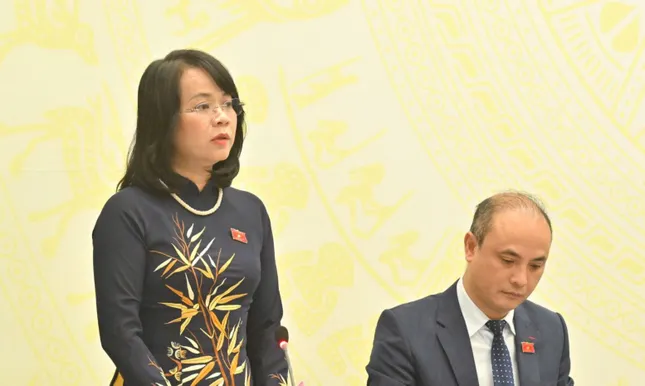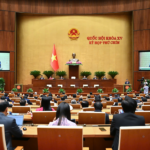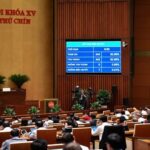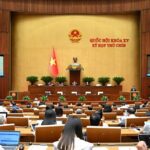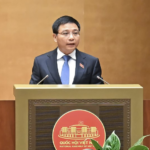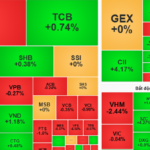On June 27, the National Assembly’s Office held a press conference to announce the results of the 9th session of the 15th National Assembly.
At the conference, lawmaker Pham Thi Hong Yen, a member of the Committee for Economic and Financial Affairs, answered questions regarding the timing of amendments to the Law on Personal Income Tax.
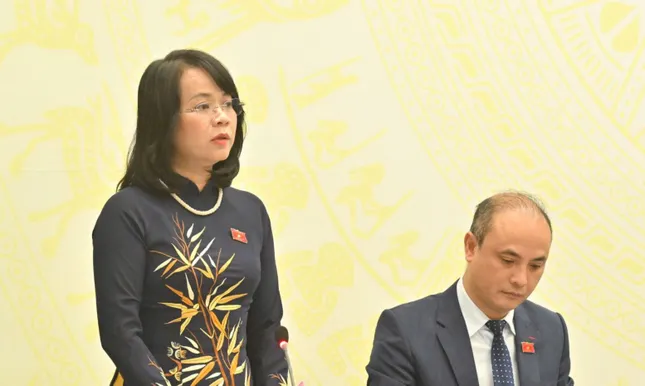
Ms. Pham Thi Hong Yen answers questions at the press conference. Photo: Nhu Y
Ms. Yen stated that the current Law on Personal Income Tax stipulates that in cases where the consumer price index fluctuates by more than 20%, the Government will propose to the Standing Committee of the National Assembly to adjust the level of personal allowances.
The law also allows the Government to propose adjustments to the Standing Committee. At the 10th session, the Government is expected to submit a comprehensive revision of the Law on Personal Income Tax, which will include adjustments to personal allowances.
Previously, in an interview with Tien Phong newspaper, Deputy Prime Minister Ho Duc Phoc stated that the Government will submit this law to the National Assembly for consideration at the 10th session, which will take place in October.
The lawmakers also agreed that the National Assembly should consider amendments at the nearest session, with the revised law taking effect from the beginning of 2026.
Monitoring the fulfillment of promises
Regarding the issue of extra classes, Ms. Nguyen Thi Mai Hoa, Vice Chairman of the Committee for Cultural and Social Affairs, continued to emphasize several reasons for the prevalence of extra classes.
These reasons include the desire for better academic performance, lack of schools and infrastructure, etc. According to Ms. Mai Hoa, this is a reality that the National Assembly’s supervision program has pointed out.
To address this situation, during the questioning session, the Minister of Education and Training pledged to invest in equipment and infrastructure to enable two-session school days.
At the closing session, the National Assembly issued a resolution on questioning activities, which included a focus on increasing investment in infrastructure and ensuring the conditions for implementing two-session school days.
“This provides a basis for the National Assembly to continue supervising the implementation of the proposed solutions,” said Ms. Hoa.
In addition, the National Assembly will also monitor the education budget and related projects, such as infrastructure improvement.
The Highway to Progress: Vietnam’s Parliament Approves $5.2 Billion Ring Road Project for Ho Chi Minh City
With an overwhelming majority of delegates in favor, the National Assembly has passed a resolution approving the investment policy for the Ho Chi Minh City Ring Road 4 project.
Extending the Exemption of Agricultural Land Use Tax until December 31, 2030
With an overwhelming majority vote, on the afternoon of June 26, the National Assembly passed a resolution to extend the exemption period for agricultural land use tax.
“Data Protection Law: Buying and Selling Personal Data Can Lead to Fines of Up to 10 Times the Amount Earned from the Violation.”
For the unauthorized sale and purchase of personal data, fines can reach up to 10 times the value of the transaction. Violations regarding cross-border data transfers can result in a maximum fine of 5% of the previous year’s turnover, while other infractions carry a maximum penalty of VND 3 billion.

























